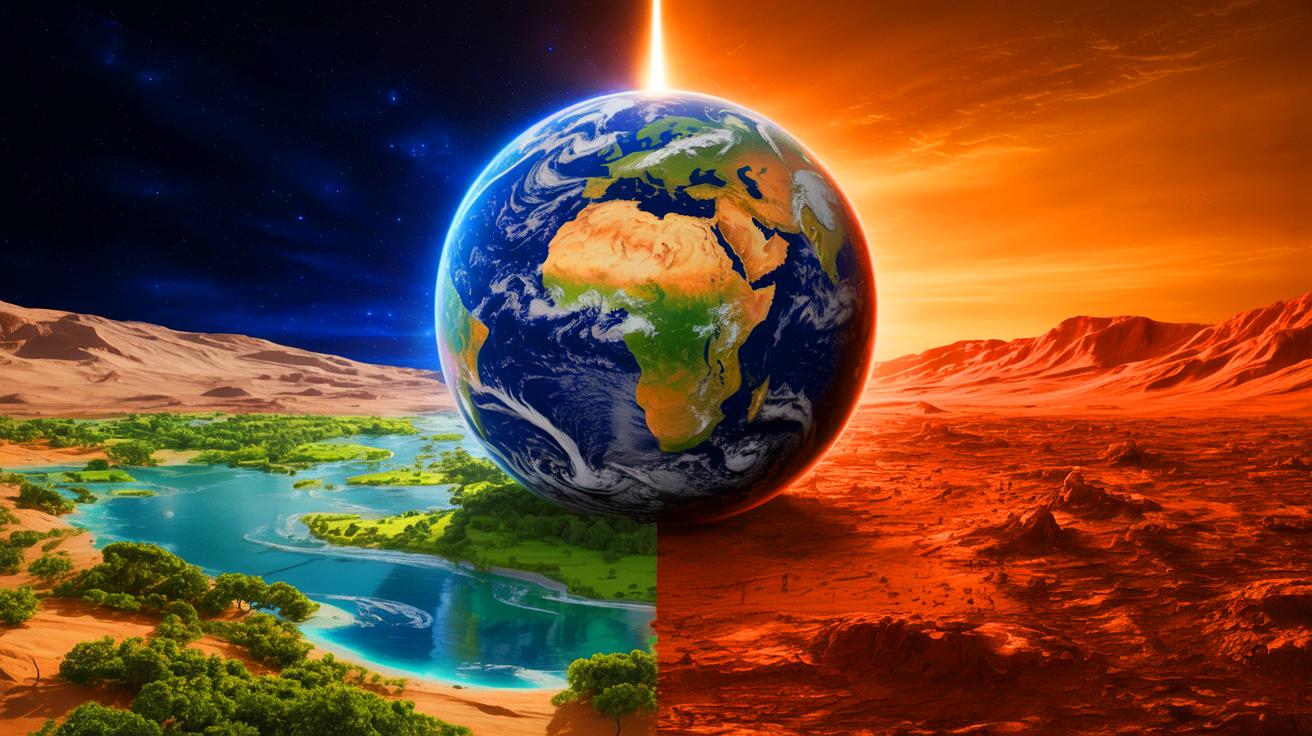IN A NUTSHELL
🚀 Elon Musk’s vision of Mars colonization faces criticism from astrophysicist Adam Becker, who deems it an unrealistic fantasy.
🌍 Becker argues that even under apocalyptic scenarios, Earth would remain more hospitable than Mars due to its breathable atmosphere and protective magnetic field.
❄️ Mars presents significant challenges with its harsh environment, including thin CO₂ atmosphere, extreme cold, and toxic soil.
🔬 Efforts to terraform Mars are seen as impractical, with Becker advocating for prioritizing Earth’s preservation instead.
In a world where technology and innovation are rapidly advancing, discussions about the colonization of Mars have captured the public imagination. Spearheaded by influential figures like Elon Musk, these discussions often position Mars as a potential sanctuary for humanity in case of catastrophic events on Earth. However, astrophysicist Adam Becker challenges this popular narrative, arguing that such ideas are more fantasy than feasible strategy. In the face of Earth’s potential apocalyptic scenarios, Becker believes that our planet, even if ravaged, would remain far more habitable than the cold, barren deserts of Mars.
The Martian Dream: Elon Musk’s Grand Vision
Elon Musk, the visionary CEO of SpaceX, has not shied away from expressing his ambition to make humanity a multiplanetary species. Central to this vision is the colonization of Mars, which is often depicted as a lifeboat in the event of terrestrial cataclysms. However, Adam Becker, an esteemed astrophysicist and author, considers this idea to be a prime example of technological optimism that is disconnected from the physical realities of space colonization. In a candid interview with Rolling Stone, Becker did not mince words, calling the notion “one of the most foolish things one could say.”
Becker’s critique is rooted in the sheer impracticality of establishing a sustainable human presence on Mars. The Martian environment poses insurmountable challenges that make it a far less viable option compared to a damaged Earth. While Musk’s goals are laudable in their ambition, Becker argues that they overlook the inherent difficulties of adapting the human species to a world that is inherently hostile and unforgiving.
Surviving Earth’s Catastrophes: A Comparative Analysis
To support his argument, Adam Becker presents three extreme scenarios: an asteroid impact comparable to the one that wiped out the dinosaurs, a global nuclear war, and runaway climate change. In each of these dire circumstances, Becker asserts that Earth would still be more accommodating than Mars. This is because, despite significant devastation, Earth would retain essential elements such as a breathable atmosphere, suitable gravity, accessible water, and natural protection from harmful radiation.
The table below highlights the stark differences between a post-cataclysmic Earth and present-day Mars:
Criterion
Earth (Post-Cataclysm)
Mars (Today)
Atmosphere
Rich in oxygen and nitrogen, dense
95% CO₂, pressure 0.088 psi, unbreathable
Average Temperature
Potentially reduced
-81°F, extreme constantly
Water Presence
Oceans contaminated but present
Deep ice, inaccessible
Magnetic Field
Present, protective
Absent, direct cosmic radiation
Soil
Contains organic matter
Toxic, rich in cancer-causing perchlorates
On Mars, life would be confined to pressurized domes, and any failure in critical systems would lead to immediate disaster. Conversely, Earth, even after a planetary disaster, could still harbor pockets of life capable of recovery and regeneration.
Terraforming Mars: Science or Science Fiction?
Elon Musk envisions a Mars transformed by human ingenuity: detonating nuclear bombs at the poles, deploying giant mirrors in space, and constructing climate-controlled greenhouses. Yet, transforming Mars into Earth 2.0 is an immense challenge that includes:
Releasing enough CO₂ to thicken the atmosphere.
Creating a sustainable greenhouse effect to warm the planet.
Building an artificial magnetic field for protection.
Even if all CO₂ reserves were unleashed, the atmospheric pressure would reach only 7% of Earth’s, inadequate for survival without pressurized suits. The colossal cost of transporting materials, food, water, and humans across 34 million miles makes the endeavor daunting.
Becker concludes that investing in Mars for survival is akin to abandoning a ruined hospital to survive in a radioactive desert with no oxygen. “Better to preserve our planet, even wounded, than to exile ourselves to a giant open-air pressure chamber,” he argues. Without a credible interplanetary Plan B, the focus must remain on safeguarding this blue jewel suspended in space, the only known sanctuary for life.
In the end, the debate over Mars colonization raises profound questions about our priorities as a species. Should we direct our resources towards a distant, uncertain future on another planet, or should we invest in healing and protecting our own? As we stand on the precipice of space exploration, the choices we make today will shape the destiny of humanity. What path will we choose as we look to the stars?
This article is based on verified sources and supported by editorial technologies.
Did you like it? 4.4/5 (23)
